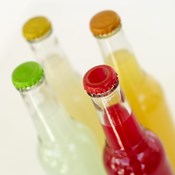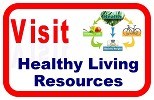Last summer the New York City Department of Health and Mental Hygiene launched a campaign, “Are you pouring on the pounds?” with the slogan “Don’t Drink Yourself Fat”. New York State Health Commissioner, Richard Daines has recently expressed his concern about childhood obesity and the role soda plays in this ongoing epidemic. Whether you approve or disapprove of a public campaign that discourages the consumption of sugar sweetened beverages or agree or disagree with the Commissioner’s proposal to impose a sugar tax, the nutritional facts speak for themselves.
Dietitians will tell you that an occasional indulgence of any food is fine as part of an overall healthy diet. But the definition of "occasional" can get some people stuck. One can of a high-sugar beverage every day is actually quite a bit.
Still, you're not alone. The trend toward consuming more calories from beverages has been growing for decades. A 2007 study in the journal Obesity reported that the percentage of calories from beverages increased from 11.8 percent in 1965 to 21 percent in 2002. That represents an increase of 222 calories per person per day from beverages, mainly from high-sugar soft drinks. Since it takes just 3,500 extra calories over time to put on a pound of weight, it's easy to make a connection between higher consumption of soft drinks and higher rates of overweight and obesity across the nation.
To find out what you're really consuming, take a look at the Nutrition Facts label on your can of soda. Some of the most popular beverages contain about 150 calories and close to 40 grams (about 10 teaspoons) of sugar. It's hard to imagine putting that much sugar on your cereal in the morning -- or on anything else you eat. But we don't even think about it when we pop open a can of soda.
And it's not just weight gain that you should worry about. A recent study in the American Journal of Clinical Nutrition showed that soft drinks, fruit drinks, and other beverages with added sugar are linked to higher risk of heart attack. Researchers tracked more than 88,000 women in the Nurses' Health Study from 1980 to 2004. The women who drank two or more sweetened beverages a day had a 35 percent higher risk of heart attack than those who drank less than one a month. Women who drank one sweetened drink a day had a 23 percent higher risk. Sweetened beverages may harm the heart by raising your blood sugar level, which could promote inflammation, or by raising triglycerides.
Another study in the same journal reported that overweight or obese people who cut back on calories from sweetened beverages lost more weight than those who cut back on calories from solid foods. The thought is that beverages are not as satisfying as foods, so it's easier to reduce intake and not have to fight hunger pangs.
The bottom line? There are plenty of reasons to reduce intake of high-sugar beverages. You should do so. Your body will thank you for it.
Source: http://www.ag.ohio-state.edu/~news/story.php?id=5309 Writer: Martha Filipic, 614-292-9833, filipic.3@cfaes.osu.edu





